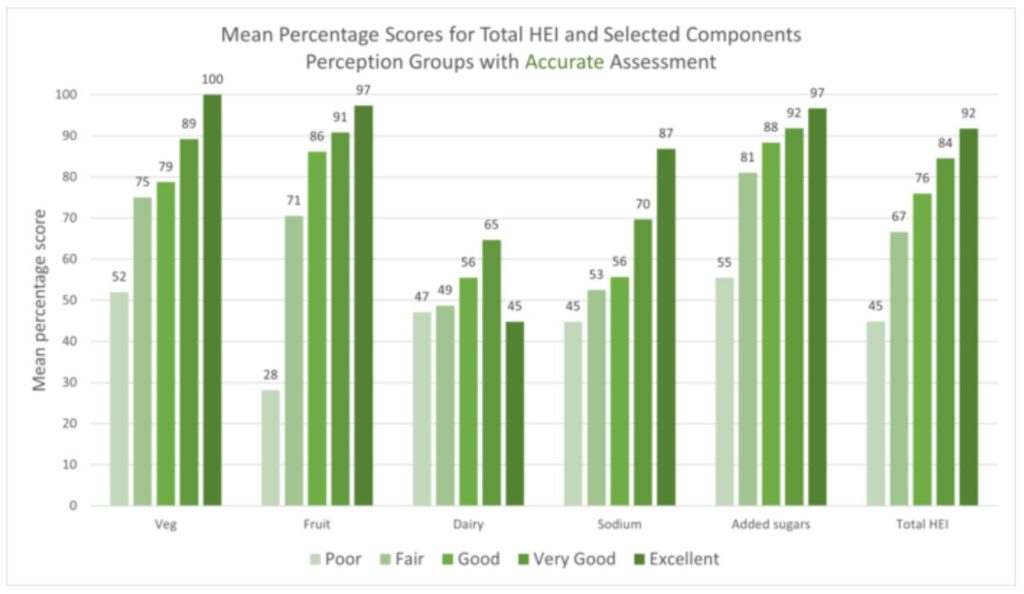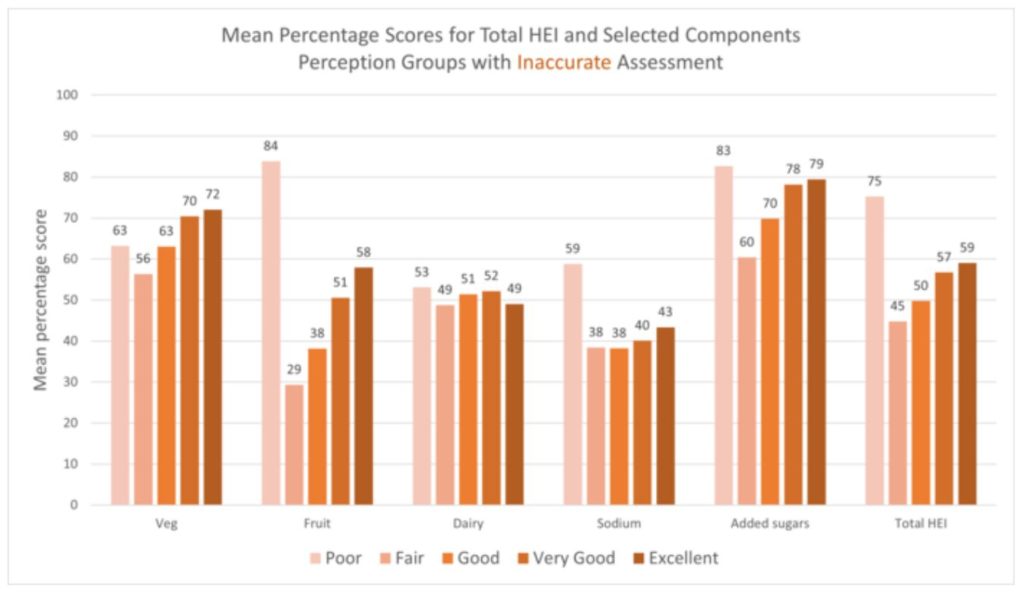Do you eat healthily? Although it appears to be a straightforward question, most Americans, according to a recent survey, struggle to answer it correctly.
Jessica Thomson, the lead author of the new study to be presented at NUTRITION 2022, says: “We found that only a small percentage of U.S. adults can accurately assess the healthfulness of their diet, and interestingly, it’s mostly those who perceive their diet as poor who are able to accurately assess their diet.”

“Additionally, most adults overrate the quality of their diet, sometimes to a substantial degree.”
The researchers wanted to find out if a single, simple question could be used instead of or in addition to detailed dietary questionnaires, which are usually used in nutrition research, as a screening tool for nutrition studies. Studies have shown that how healthy someone thinks they are is a good predictor of illness and death, but there isn’t much research on whether how healthy someone thinks their diet is is a good predictor of how healthy their diet really is.
The study used information from the National Health and Nutrition Examination Survey, which is a survey of U.S. adults that is done every two years and is meant to be representative of the whole country. Participants had to fill out extensive 24-hour dietary recall questionnaires and grade their diet as exceptional, very good, good, fair, or poor.

The diet quality of each participant was assessed using meal recall questionnaires. Fruits and vegetables, whole grains, healthy fats, lower-fat dairy products, seafood, and plant proteins are some of the foods recognized as healthier. Refined grains and diets heavy in sodium, added sugars, or saturated fats were deemed unhealthy.
There were big differences between how the researchers calculated the scores and how the people in the study rated their own diets. About 8,000 of the more than 9,700 people who took part (or about 85 percent) gave wrong answers about the quality of their diet. Almost everyone (99 percent) overestimated the nutritional value of their food.

Surprisingly, individuals who assessed their diet as poor had the highest accuracy, with the researcher’s score matching the participant’s evaluation 97 percent of the time. In the other four rating categories, the proportion of participants who correctly judged their food quality ranged from 1 percent to 18 percent.
Further research, according to Thomson, could help to clarify what elements people evaluate when evaluating their nutrition quality. It would be useful to know, for example, whether individuals are aware of certain dietary requirements and whether they consider where their food is purchased or prepared.
“It’s difficult for us to say whether U.S. adults lack an accurate understanding of the components of a healthful versus unhealthful diet or whether adults perceive the healthfulness of their diet as they wish it to be—that is, higher in quality than it actually is,” adds Thomson.
“Until we have a better understanding of what individuals consider when assessing the healthfulness of their diet, it will be difficult to determine what knowledge and skills are necessary to improve self-assessment or perception of one’s diet quality.”
Image Credit: Getty
You were reading: Americans Are Addicted: They Often Overestimate Their Diet’s Quality
